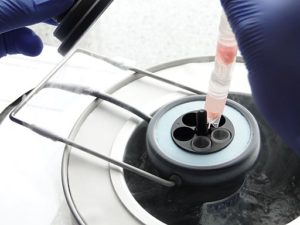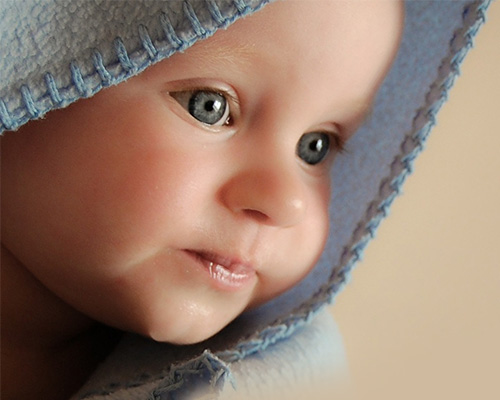What are fertility options for cancer patients?
Fertility options for cancer patients must be discussed with patients prior to chemotherapy, surgery or radiation therapy. Recent advances in egg freezing, embryo freezing, and sperm freezing have made the possibility of future pregnancies by using banked tissues very common. Many of you have read the article in our media page about the young couple that had the foresight to freeze sperm when facing the terrible diagnosis of incurable spinal cancer. I was honored and happy to be of help to that family. It is good to see that some cancer doctors and surgeons are mentioning reproductive options to their patients before surgery, radiation, or chemotherapy since many of these therapies cause infertility by damaging the ovaries and the testicles.
About a month ago, I received a phone call from Dr. Joshua Green (a local urologist and fellow infertility physician and microsurgeon). Dr. Green was not on call, but his partner, Dr. Carey had been called by the patient’s oncologist, Dr. Mammel. It seemed that Dr. Mammel was about to give chemotherapy to an inpatient at Sarasota Memorial Hospital and the patient had requested sperm banking. Neither Drs. Mammel or Carey knew that we have been offering these services since 1997. Fortunately, Dr. Green had my cell and called me at breakfast. I drove to the hospital and received the patient’s specimen. I then drove it to our Sarasota office and successfully froze it for future use. This recent event has led me to realize that we need to embark in an awareness campaign. This has begun. I will be communicating with all oncologists and oncology nurses in the coming months both in person and through the web.
Oncofertility is a new catch term for something that we have been doing for many years.
In our offices, we provide oncofertility consultation discussing fertility options for cancer patients. We also offer services including sperm banking, egg vitrification and banking, embryo vitrification and banking, and soon we will be offering ovarian tissue banking under a research protocol.

For the reference:
According to the list compiled by UCLA, major fertility options for cancer patients include:
- Egg Banking to cryopreserve (freeze) a woman’s eggs for future fertilization with sperm when she meets her future life partner. Hormonal stimulation of the ovaries result in the maturation of multiple eggs that can be harvested by ultrasound guided aspiration and frozen for future use. This process may require 2-6 weeks to complete.
- Embryo Banking to freeze embryos for future implantation. Hormonal stimulation of the ovaries result in the maturation of multiple eggs that can be harvested and fertilized immediately with her partner’s sperm to create embryos, which are then frozen for future use. This process may require 2-6 weeks to complete.
- In Vitro Maturation (IVM) of oocytes, where multiple immature eggs are harvested by ultrasound guided aspiration without prior hormone stimulation. These eggs will then be matured in the laboratory either before or after freezing. The main advantage is the relatively short time period required to obtain immature eggs, which minimizes any delay before cancer treatment. Scientists are currently developing methods to optimize the maturation process of eggs in the laboratory.
- Sperm Banking to freeze sperm for future use. Multiple semen samples can be collected and frozen over a period of several days.
- Testicular Sperm Aspiration or Extraction is a minor surgical procedure where sperm is retrieved directly from the epididymis or testes, which can frozen for future use. This is only required when no sperm can be produced through ejaculation.
- Donor Egg is recommended when the ovaries are permanently damaged by cancer treatment and no longer able to produce eggs. A known or anonymous egg donor is hormonally stimulated to mature multiple eggs that can be harvested and fertilized with sperm from the patient’s male partner to form embryos. The embryos can then be transferred into the patient’s own uterus to carry the pregnancy.
- Donor Sperm is recommended when the testes are permanently damaged by cancer treatment and no longer able to produce sperm. The sperm from a known or anonymous donor is used to achieve a pregnancy with the patient’s female partner.
- Gestational Surrogate is required when cancer treatment damages the uterus and prevents a woman from carrying a pregnancy. Embryos created from a couple’s eggs and sperm are transferred into the uterus of the gestational surrogate in order to carry the pregnancy.
- Adoption is a legal transfer of all parental rights and responsibilities of a child from the biological parent.
Julio E. Pabon, M.D., F.A.C.O.G.
C.E.O./Fertility Center and Applied Genetics of Florida/
Assistant Clinical Professor/Florida State Univ. College of Medicine

copyright J. Pabon collection


